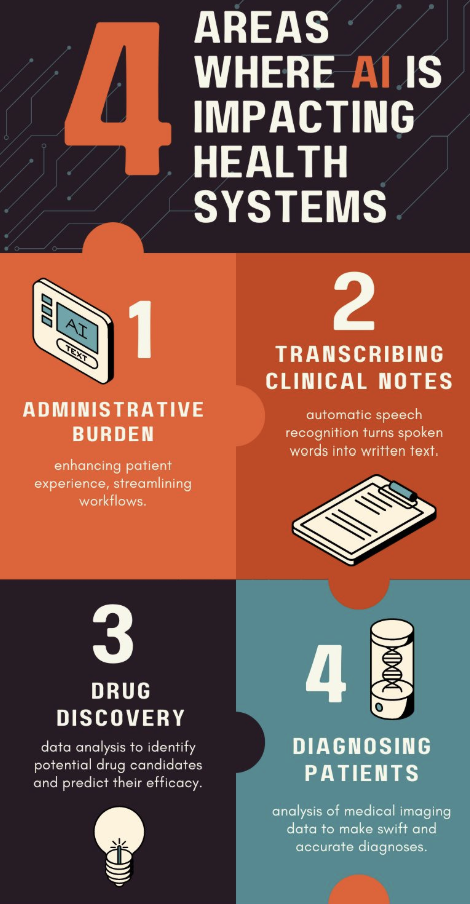Artificial Intelligence (AI) is transforming healthcare by enhancing patient summaries and improving interoperability across different healthcare systems. Environmental scans help identify trends, challenges, and opportunities in adopting AI-driven technologies. Let’s explore key findings from global patient summary initiatives and the role of AI in ensuring seamless healthcare data exchange.
Key Findings from Global Case Studies

1. British Columbia
- Objective: Improve accessibility to community-based clinical and treatment data.
- Technologies: Use of notifications, HL7 FHIR for interoperability, and achieving full FHIR readiness.
- Notification Frameworks: Alerts for patient admissions and summaries to facilitate better care coordination.
2. Ontario
- Patient Summaries: Stored in a provincial repository for authorized access.
- HL7 FHIR Challenges: Issues with validation errors and large file sizes.
- Privacy Considerations: Consent-based access to ensure patient confidentiality and compliance with regulations.
3. Australia
- My Health Record Integration: Seamless data exchange between providers and patients.
- SMART on FHIR: Enables secure access and contributions from various stakeholders.
- Real-Time Notifications: Systems ensure up-to-date alerts on patient conditions and health changes.
4. Nordic Countries
- Cross-Border Patient Summaries: Enables interoperability across European healthcare systems.
- Standardization: Focuses on aligning systems for better health data exchange and patient access.
Technology Landscape: AI & Interoperability
- HL7 FHIR & CDR: AI-driven tools enhance standardization efforts, improving interoperability and data exchange.
- Notification Frameworks: AI-powered alerts streamline patient admissions, discharges, and transitions.
- EMR Market Trends: AI adoption varies by region, with increasing demand for integration between clinical systems.
- Governance & Privacy: Ensure compliance with evolving regulations and security standards related to AI uses.
AI’s Role in Improving Patient Care

- Data Scrubbing & Validation: AI enhances data accuracy by detecting inconsistencies and errors.
- Predictive Analytics: AI-driven insights support proactive healthcare interventions.
- Automated Summarization: AI-generated patient summaries improve efficiency in clinical decision-making.
Challenges & Future Outlook
- AI Implementation Hurdles: Standardization, privacy concerns, and integration with existing healthcare infrastructure.
- Healthcare Governance & Interoperability: AI’s potential in creating seamless cross-border and cross-system data exchanges.
- Future Roadmap: Continued AI advancements will drive better patient summaries, streamlined workflows, and enhanced healthcare outcomes.
Summary
AI is revolutionizing patient summaries and interoperability, streamlining healthcare data exchange and improving clinical decision-making. Continuous innovation and regulatory adaptation are essential for maximizing AI’s benefits in healthcare. As AI technology matures, it will play a pivotal role in shaping the future of digital healthcare solutions.
‘Healthcare AI’ searches are up by 667% over the last 5 years!


Leave a Reply